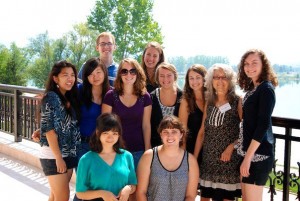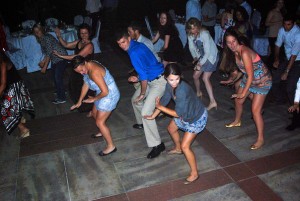I can’t tell you how many times I’ve thought this in the last six months.
The first was when I learned I had been awarded the Fulbright. A moment that I expected would have been joyous, was actually a mix of relief (that the wait was over) and terror. At a time where most of my peers were still figuring out their post-grad plans, I now had the next year laid out in front me. On March 26, 2012, I was in the same, confused boat as everyone else, and at Scripps that boat is more like a luxurious cruise ship of confusion. By March 27, 2012, I was in a boat of my own. Sure, my dinghy-for-one had a heading, but I really missed the company.
It can be difficult to talk about job opportunities with friends senior year, particularly if they haven’t been offered anything, and even more so if you’ve been offered an opportunity for which they’ve been rejected. Still, I had thoughts and questions to wrestle with, starting with “what have I done?”
I don’t plan on being a teacher. I’m not even sure that I enjoy kids. Actually, I’m fairly certain I don’t enjoy most kids, but you can’t say that sort of thing without sounding heartless. Did I really want to be an English Teaching Assistant? Maybe I got caught up in the Scripps Fulbright frenzy. Maybe I just needed to “win” something to prove my worth. I’d experienced so many lonely moments in Denmark, did I really want to go abroad for a full year? And what about my long-term boyfriend, who I would be leaving behind? I re-read my Statement of Grant Purpose and Personal Statement, regained my confidence and accepted the offer, but these doubts and anxieties did not disappear.
They resurged with a vengeance at the airport. I was a crying, snot-faced mess at the gate of my plane, and seriously considered not boarding and wiring Fulbright their money back. “What have I done?” In addition to the doubts about my professional capabilities and trajectory, I was overwhelmed with leaving my boyfriend. After four years of taking those Scripps psychology surveys that ask you context-less questions pitting careers and relationships against each other, I was living out that dilemma. And it hurt.
Now that I’m here, I’m still not sure what I’ve done. I don’t know how to teach. I don’t speak the language. I could be eating my favorite pumpkin bagel with pumpkin cheesecake cream cheese back in the beautifully autumnal Pacific Northwest right now. I could be furnishing an apartment that I plan to live in for more than nine months, or going to my friends’ engagement parties. I could be living somewhere with a Taco Bell right now, for goodness sake!
But I’m not. I’m on an adventure that requires me to take one step at a time. It’s one that I am ready for, whether I think so or not, and sometimes I need to take time out to remind myself of my strengths. I’m a “Strong Scripps Woman.” I’m good at mentoring, public speaking, recognizing and navigating cultural differences. I work well with a team. I have a good sense of direction.
And sometimes, I can write.







